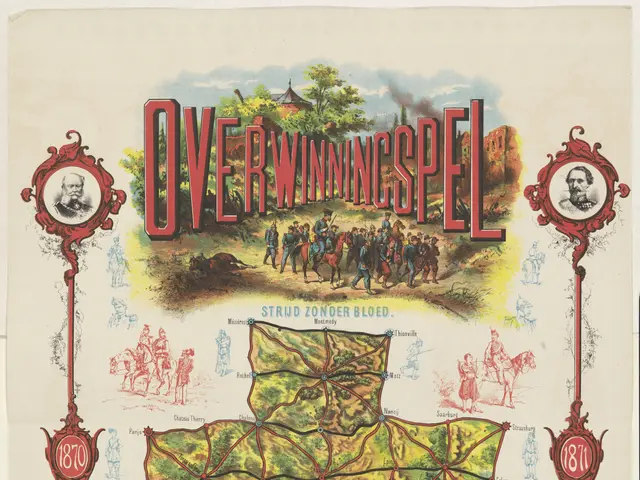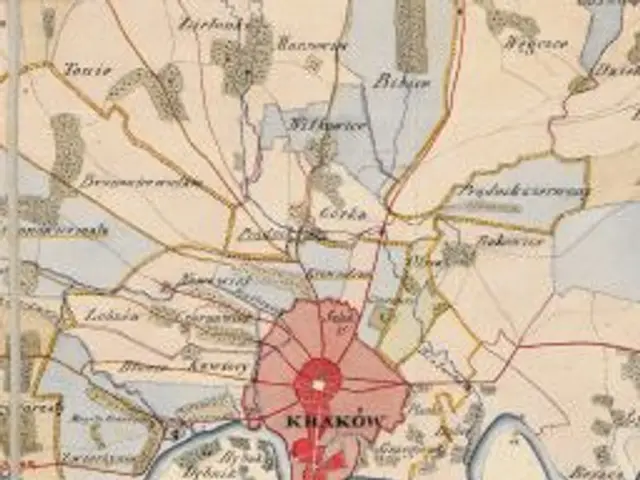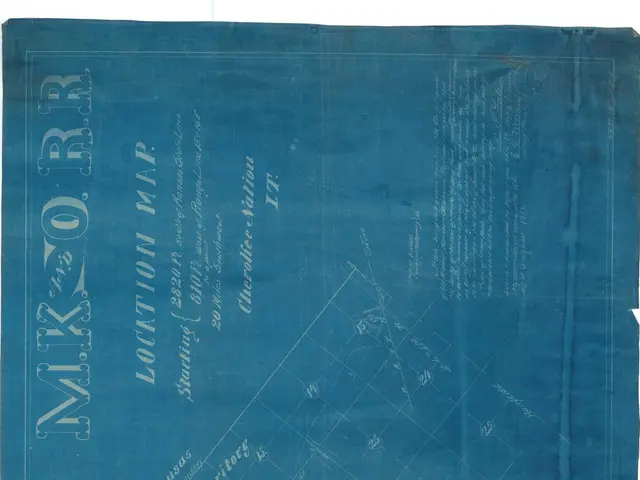European Indian Servants During the British Raj: The Largely Unknown Narrative of Indian Ayahs in Britain
In the heart of London, a significant chapter in history unfolded, one that was marked by the presence of Indian travelling ayahs. These women, employed as nannies by British families, played a pivotal role in the domestic sphere of colonial Britain, yet their stories have often been overlooked.
The Ayah and Amah International Research Network, a collaborative project involving scholars from the UK, Australia, and the United States, has taken on the task of shedding light on these marginalized communities. This project, titled "Ayahs and Amahs: Transcolonial Servants in Australia and Britain 1780-1945," focuses on the experiences of South Asian "ayahs" and Chinese "amahs."
During the colonial period, the term 'ayah' referred to Indian women who cared for children in British households in India. Many of these ayahs undertook overseas voyages, including trips to Britain. The project's research, which adopts a 'history from below' approach, delves into the lives of these women, revealing their agency in navigating unknown territories and negotiating with employers.
Arunima Datta, in her book "Waiting on Empire: A History of Indian Travelling Ayahs in Britain," highlights the overlooked experiences and identities of travelling ayahs in archival records and social memory. Similarly, Avantika Binani, a Research Assistant for the project, has focused on the journey of an ayah named Alice Nona from Ceylon to Australia in 1949 with her employer, Olive Temple. Binani's research, conducted by scanning the National Archives of Australia and looking at the Department of Immigration file papers, correspondence, and newspaper articles, provides a fascinating insight into the lives of these women.
The project's website, ayahsandamahs.com, offers a wealth of information about these travelling women and their stories. It also reveals the challenges they faced, such as abandonment and social invisibility once their work ended, which left many stranded or marginalized in foreign lands.
One such example is the Ayahs' Home in Hackney, London, which provided temporary accommodation for ayahs who were left stranded without work or a place to stay. This home was recently commemorated with a blue plaque in June 2022.
During long sea passages, travelling ayahs looked after children in dedicated spaces such as the Ayahs' Home in London. During seasonal visits, British families often asked their ayahs to accompany them or engaged the services of an experienced travelling ayah to take care of their children, baggage, and the memsahib.
Newspaper articles were especially useful in understanding public sentiment around the issue. They reveal a complex picture, with both admiration for the ayahs' dedication and concern about their social status and integration.
The stories of Indian travelling ayahs shine a light on the gendered and racialized dimensions of empire and migration. Their experiences echo into contemporary discussions of globalized labor and diaspora identities. Despite the challenges they faced, these women played a crucial, yet overlooked, role in the functioning and mobility of the British Empire.
References: 1. Ayahs and Amahs: Transcolonial Servants in Australia and Britain 1780-1945, ayahsandamahs.com 2. Datta, Arunima. Waiting on Empire: A History of Indian Travelling Ayahs in Britain. Hurst, 2016. 3. Binani, Avantika. "The Journey of Alice Nona: An Ayah from Ceylon to Australia in 1949." Ayahs and Amahs: Transcolonial Servants in Australia and Britain 1780-1945, 2021. 4. Digital Encyclopaedia of European History, "Ayahs in British India." 5. Lohray, Uma. The One-Way Ships. Penguin Books, 2004. 6. "Our Migration Story," a website on migrations, includes a chapter on ayahs discussing their seasonal visits to the British Isles.
- The Ayahs and Amahs: Transcolonial Servants in Australia and Britain 1780-1945 project, focusing on South Asian 'ayahs' and Chinese 'amahs', delves into their lives during the colonial period, highlighting their roles in home-and-garden, personal-growth, and education-and-self-development, as they navigated their agency within the domestic sphere of colonial Britain and beyond.
- The project's research, as showcased by Arunima Datta's book, "Waiting on Empire: A History of Indian Travelling Ayahs in Britain", and Avantika Binani's work on Alice Nona, offers insights into the lifestyle and travel experiences of these women, revealing the challenges they faced and their impact on the broader narrative of empire and migration.





